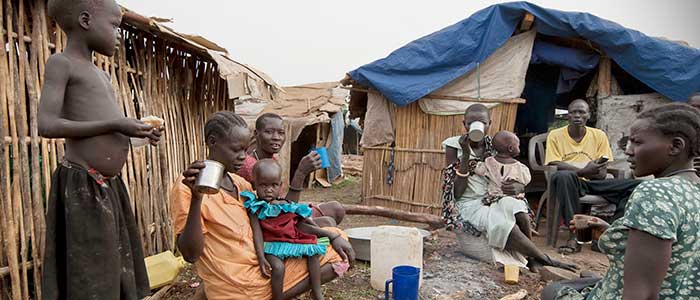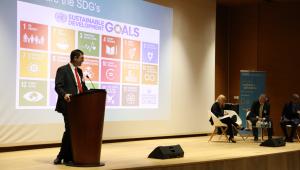Web_SouthSudan_iStock_000061842024_Large.jpg

People in displaced persons camp in Juba, South Sudan
The two organisations have formed an alliance to make early childhood nutrition and development a global policy and public spending priority, with studies proving that experiences as a young child have a profound impact on individuals’ futures.
They noted that this is also an investment in economic growth, with evidence suggesting that an additional dollar invested in quality ECD programmes yields between $6 and $17 worth of economic returns.
World Bank president Jim Yong Kim noted that failing to invest can have economic costs too, pointing out that countries where a third or more of children suffer from stunting will not be able to effectively compete in the digitised global economy.
“The time has come to treat childhood stunting as a development and economic emergency,” he stated.
“Our failure to make the right investments in early childhood development is condemning millions of children to lives of exclusion. We can’t promise to equalise development outcomes, but we can insist on equalising opportunity.”
Globally one out of four children under five, or 159 million youngsters, are stunted due to poor nutrition, with numbers significantly higher in parts of Africa and South Asia. In eastern Africa, 42% of all children were affected in 2011, according to the WHO.
Stunting, a key indicator of chronic malnutrition resulting from too little food and a vitamin- and mineral-poor diet, results in children being too short for their age. As growth slows, brain development lags too, meaning they will likely never learn as well as they could have done.
The bank and UNICEF also noted that emerging research suggests that prolonged exposure to adversity, as a result of conflict, poverty or violence, can cause “toxic stress”, a brain condition which can also inhibit peak brain development in early childhood.
To compound the problem, nearly half of all three to six year olds don’t have access to pre-primary education. In sub-Saharan Africa, 80% of children are not enrolled.
“What we are learning about all the elements that affect children’s brains – whether their bodies are well nourished, whether their minds are stimulated, whether they are protected from violence – is changing the way we think about early childhood development,” said UNICEF executive director Anthony Lake.
“Now it must change the way we act,” he stressed.













